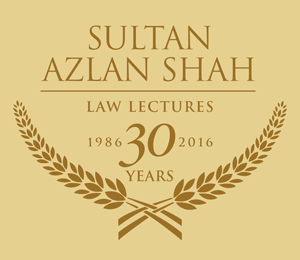
Rt Hon The Baroness Hale of Richmond
Justice and Deputy President
of the Supreme Court of the United Kingdom
LADY HALE is the United Kingdom’s most senior woman judge. In 2004, she became the first, and sadly the only, woman ‘Lord of Appeal in Ordinary’ in the entire 133-year history of the Judicial House of Lords, after a varied career as an academic lawyer, law reformer and judge.
She was educated at Richmond High School for Girls in Yorkshire and Girton College, Cambridge. She was called to the English Bar by Gray’s Inn in 1969, topping the list in the Bar Finals in 1968, and was appointed Queen’s Counsel in 1989. She taught Law at Manchester University for 18 years, specialising in family and social welfare law, and also practising for a while at the Manchester Bar.
In 1984 she became the first woman to serve on the Law Commission, a statutory body which promotes the reform of the law. There she led the work of the family law team, resulting (among others) in the Children Act 1989, the Family Law Act 1996 and the Mental Capacity Act 2005.
She was a founder member of the Human Fertilisation and Embryology Authority and chair of its Code of Practice Committee from 1990 to 1994, when she was appointed a Judge of the Family Division of the High Court, the first to be appointed direct from academia rather than the legal profession.
Lady Hale was appointed a Privy Councillor and promoted to the Court of Appeal of England and Wales in 1999, becoming only the second woman ever to be appointed to the Court of Appeal, and in 2004 to the House of Lords. This was the top court for the whole United Kingdom, until the ‘Law Lords’ became the Justices of the newly established Supreme Court of the United Kingdom in 2009. She became Deputy President of the Court in 2013.
Lady Hale has delivered judgment in numerous important decisions of the House of Lords and the Supreme Court. These include Stack v Dowden [2007] UKHL 17, a leading English property law decision which recognised a rebuttable presumption that co-habiting couples own equal shares in their property. In Sharland v Sharland [2015] UKSC 60, a panel of seven Justices of the Supreme Court held that a consent order governing a financial settlement between a divorcing husband and wife which was procured by fraudulent non-disclosure should be set aside.
More recently, Lady Hale participated in several landmark decisions of the Supreme Court, including Patel v Mirza [2016] UKSC 42, in which a panel of nine Justices of the Supreme Court considered the issue of the common law doctrine of illegality as a defence to a civil claim, and held that the earlier well-known decision of the House of Lords in Tinsley v Milligan [1994] 1 AC 340 should no longer be followed. In Willers v Joyce [2016] UKSC 43, Lady Hale was in the majority of a panel of nine Justices of the Supreme Court which authoritatively recognised the tort of malicious prosecution of legal proceedings under English law.
Lady Hale is author and co-author of a number of books, including The Family, Law and Society: Cases and Materials (6th edition, 2009) and Mental Health Law (5th edition, 2010). She retains her links with the academic world as Chancellor of the University of Bristol and Visitor of Girton College.
She also helped to establish the United Kingdom Association of Women Judges in 2004 and from 2010 to 2012 served as President of the International Association of Women Judges, a world wide body of both men and women judges committed to equality and human rights for all.
Lady Hale is married to Dr Julian Farrand, previously a Professor of Law at Manchester University. He is now the editor of Emmet and Farrand on Title, the principal textbook for conveyancing practitioners.
BACK